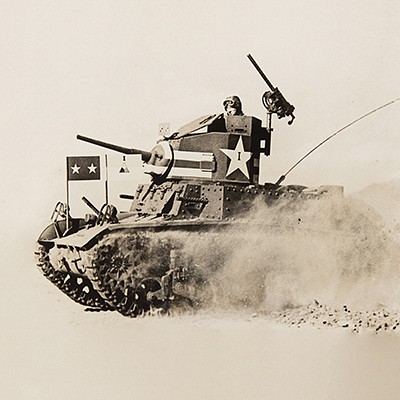Georges Clemenceau Autograph Letter Signed
Two ways to bid:
- Leave a max absentee bid and the platform will bid on your behalf up to your maximum bid during the live auction.
- Bid live during the auction and your bids will be submitted real-time to the auctioneer.
Bid Increments
| Price | Bid Increment |
|---|---|
| $0 | $5 |
| $50 | $10 |
| $200 | $25 |
| $500 | $50 |
About Auction
May 18, 2023
RR Auction support@rrauction.com
- Lot Description
Extraordinary ALS in French, signed “G. Clemenceau,” four pages on two adjoining sheets, 5.25 x 8.25, July 24, 1920. Addressed from Vichy, a handwritten letter to Andre Tardieu, the three-time Prime Minister of France and Clemenceau’s lieutenant during the Treaty of Versailles. The French leader ponders the enforceability of the treaty and conjures up a British-French disagreement with the Italian leader Vittorio Emanuele Orlando. Clemenceau opens (translated): “After reading l’Officiel, I feel the need to tell you that you made an admirable speech that cannot fail to carry. Chief, you led the operation. Chief you have spoken! Judging by the Official it seems the Chamber has given you and Loucheur a warm welcome. I welcome it in the interest of public affairs, but that was only a secondary consideration today.” He goes on, with specific reference to the terms of the Versailles Treaty, “So ask Millerand [Alexandre Millerand], if an expert on law shouldn’t be able to tell the difference between a guarantee and a sanction. The guarantee must prevent peril. The sanction becomes applicable when evil is consummated. Its alleged guarantee is only a promise of sanction resulting quite simply from the victory—which General Baquet has nothing to do with it. No one would have had the absurd idea of putting after each article of the treaty that in the event of non-execution, force would again become legitimate. This is the primordial and universal condition of any treaty!” He goes on, cryptically, “And the 830,000 tons of‰Û_Austrian? [ostensibly a reference to Vittorio Emanuele Orlando’s desire to secure the partition of the Habsburg Empire], Lloyd George and I had refused Orlando about that, and what do we get for that? Nothing for our pitiful merchant navy, that’s not enough.” Clemenceau concludes, “Loucheur has‰Û_fought back, but he may have gone a little far in saying that his background in coal and industrial manufacturing, when he was in government, made him recently feel the need for an ambassador to the Pope. He should have told me. I’ll send him a note of congratulations. I will be in Paris on Friday 30 at 7.30 in the morning. I’m counting on you, Loucheur, Klotz and Ignace at 11:30 a.m. Please let them know.” In fine condition. An interesting letter that sheds light on some of the tensions that existed between the Big Four in the lead-up to the Versailles Treaty agreement, while also broaching concerns in regard to the accord's enforceability.
- Shipping Info
-
Bidder is liable for shipping and handling and providing accurate information as to shipping or delivery locations and arranging for such. RR Auction is unable to combine purchases from other auctions or affiliates into one package for shipping purposes. Lots won will be shipped in a commercially reasonable time after payment in good funds for the merchandise and the shipping fees are received or credit extended, except when third-party shipment occurs. Bidder agrees that service and handling charges related to shipping items which are not pre-paid may be charged to a credit card on file with RR Auction. Successful international Bidders shall provide written shipping instructions, including specified Customs declarations, to RR Auction for any lots to be delivered outside of the United States. NOTE: Declaration value shall be the item’(s) hammer price and RR Auction shall use the correct harmonized code for the lot. Domestic Bidders on lots designated for third-party shipment must designate the common carrier, accept risk of loss, and prepay shipping costs.
-
- Buyer's Premium



 EUR
EUR CAD
CAD AUD
AUD GBP
GBP MXN
MXN HKD
HKD CNY
CNY MYR
MYR SEK
SEK SGD
SGD CHF
CHF THB
THB













